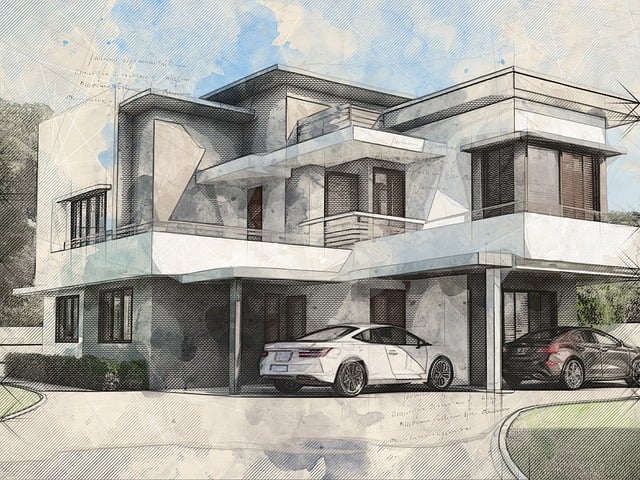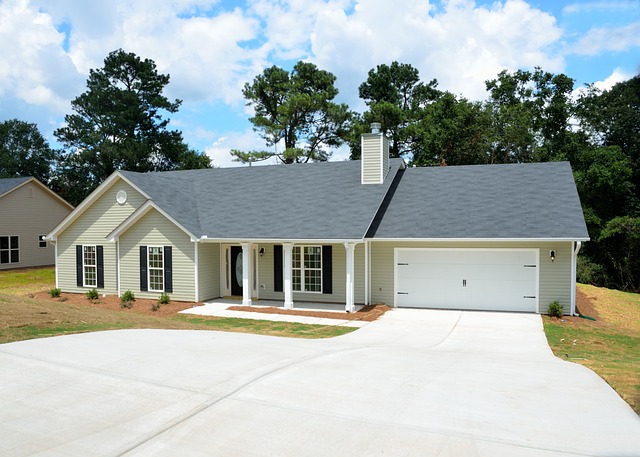Executive Condo Launch: A New Horizon in Housing
The concept of an “executive condo launch” represents a significant milestone in the real estate sector, particularly within urban landscapes. This article delves into the multifaceted aspects of executive condos, from their historical context and global impact to the economic and technological factors influencing their development. We will explore the policies and regulations that shape them, the challenges they face, and the lessons learned from successful case studies. Finally, we will examine the future prospects of this housing innovation.
Understanding Executive Condo Launch
Executive condos are a specialized type of housing designed for middle to upper-income professionals. These condominiums are typically situated in desirable urban or suburban areas and offer a blend of luxury living with practical amenities tailored to the needs of working executives. They often come with high-end features, shared facilities like gyms and pools, and are strategically located for easy access to business hubs and transportation networks.
The term “launch” in this context refers to the introduction of these condos to the market. It involves a series of activities from planning, design, marketing, to sales and handover to the residents. The launch of an executive condo is a carefully orchestrated event that reflects the developer’s understanding of the target demographic’s lifestyle preferences and financial capabilities.
Global Impact and Trends
The global impact of executive condo launches is significant, as they cater to a growing class of professionals worldwide. The demand for such living spaces is influenced by urbanization trends, migration patterns, and the rise of dual-income households. In metropolitan cities like Singapore, Hong Kong, and New York, executive condos have become a staple in addressing the housing needs of executives.
Trends indicate a shift towards sustainable and smart living solutions within these condos. Developers are increasingly incorporating green technologies and IoT-enabled features to appeal to environmentally conscious and tech-savvy buyers. The global market is also witnessing a rise in co-living spaces, which can be seen as a modern iteration of the executive condo concept, designed for individuals who value community living alongside privacy and luxury.
Economic Considerations
From an economic standpoint, executive condo launches are more than just real estate developments; they are significant investments that can influence market dynamics and investment patterns. These launches often act as economic indicators, reflecting consumer confidence, disposable income levels, and investment trends. They play a vital role in the property market, contributing to job creation, stimulating local economies, and boosting the GDP of regions where they are prevalent.
Investors are particularly interested in these condos due to their potential for capital appreciation and rental yields. The economic viability of an executive condo launch is closely tied to its location, design, and the amenities offered. Developers must carefully analyze market conditions, demographic shifts, and economic forecasts to ensure the success of their launches.
Technological Advancements
Technology has been a game-changer for executive condo developments. Smart home technologies, such as security systems, energy management, and entertainment integrations, have become standard features. Buildings are increasingly equipped with high-speed elevators, advanced fire safety systems, and durable materials that enhance both the luxury experience and the safety of residents.
The future holds even more promise with advancements in AI and machine learning. These technologies could lead to personalized living experiences, predictive maintenance, and energy efficiency like never before. The integration of these technologies not only improves the quality of life for residents but also positions executive condos as modern and forward-thinking living options.
Policy and Regulation
Governments around the world have established policies and regulations to govern the development and sale of executive condos. These include zoning laws, building codes, land use planning, and housing policies that ensure safety, sustainability, and affordability. In countries like Singapore, specific regulations dictate who qualifies to purchase an executive condo, ensuring that they remain accessible to a broad segment of the population.
Developers must navigate these regulatory frameworks to secure approvals, manage construction timelines, and ensure compliance with all applicable laws. The evolving nature of these policies means that developers must stay informed and adaptable to maintain compliance and take advantage of new opportunities.
Challenges and Criticisms
Despite their popularity, executive condo launches face several challenges and criticisms. One major concern is the affordability aspect; critics argue that while these condos are marketed as middle-income housing, rising costs may price out potential buyers. Another challenge is the balance between luxury features and sustainable living practices—developers must find ways to integrate both without compromising on quality or efficiency.
To address these issues, developers can implement affordable housing initiatives, invest in sustainable technologies, and engage with local communities to ensure their projects meet the needs of a diverse population. By doing so, they can build trust and a positive reputation, which is crucial for long-term success.
Case Studies
Several successful executive condo launches serve as valuable case studies for understanding what works in this market segment. For instance, the Marina One Residences in Singapore combined high-end living with extensive green spaces and sustainable features, setting a new standard for eco-conscious luxury living. Another example is the Hudson Yards development in New York City, which offers its residents a blend of upscale amenities, cultural experiences, and technological innovations.
These case studies highlight the importance of location, design, and innovation in creating successful executive condo launches. They also demonstrate how developer foresight, community engagement, and responsiveness to market needs can lead to highly sought-after living spaces.
Conclusion
Executive condo launches are a multifaceted real estate phenomenon with significant economic, social, and technological implications. As cities continue to evolve and the demands of professionals change, these developments will need to adapt to new challenges and opportunities. By embracing innovation, prioritizing sustainability, and maintaining regulatory compliance, executive condos can continue to offer a desirable living option for middle to upper-income professionals worldwide.
The future of executive condo launches is bright, with potential for growth in emerging markets and the continuous refinement of living experiences through technology. As the global economy recovers from recent disruptions, these developments will likely remain a key component of urban and suburban landscapes, catering to the evolving lifestyles of modern professionals.
Executive Condos (ECs) in Singapore cater specifically to couples and families, offering a unique blend of private condominium luxury with public housing benefits. Prospective investors should consider factors such as location, developer reputation, unit types…….
2023 sees Singapore's Tampines EC as a significant milestone for executive condominium living, offering a modern and sustainable residential experience. This development is strategically positioned near Tampines Regional Centre and key shopping hubs, prov…….
Singaporeans interested in an affordable yet spacious home with the potential to upgrade to a private condominium should consider an Executive Condominium (EC) Launch. ECs are designed for families and young couples, offering amenities comparable to private co…….
2024's Executive Condo (EC) launch in Singapore offers a prime investment and living opportunity for those looking to balance family-friendly amenities with modern luxury. This EC development is designed to provide substantial capital appreciation potenti…….
2023 has marked a significant milestone in Singapore's housing landscape with the rollout of numerous Executive Condo (EC) projects, which are strategically located to cater to diverse lifestyles. These EC launches offer modern living spaces ranging from …….
2023 has seen a boom in Executive Condo (EC) launches in Singapore, with new developments offering a luxurious yet eco-friendly living experience. These ECs are strategically located for easy access to transportation and amenities, catering to both families an…….
2023 introduces the EC Singapore 2023, a significant Executive Condo Launch that encapsulates modern urban living within the dynamic city of Singapore. This development is a harmonious fusion of affordability and luxury, catering to families and career-focused…….
An Executive Condo (EC) launch is a unique housing opportunity in Singapore for first-time homeowners or singles who are Singapore citizens, offering a middle-ground between public and private housing. These leasehold condos, with a 99-year tenure, come with …….
The review landscape of Executive Condo projects underscores the importance of careful consideration before launch. Prospective residents have expressed a range of sentiments, highlighting both strengths and areas for improvement across various launches. It’s…….
2023 has witnessed a significant increase in high-quality Executive Condo launches in Singapore, which artfully combine luxury and practicality to cater to diverse modern lifestyles. These new residences are designed with spacious interiors and smart home tech…….









